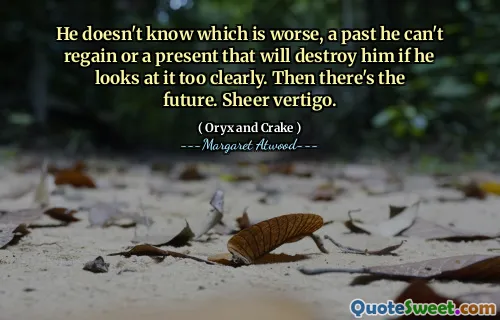How much misery . . . how much needless despair has been caused by a series of biological mismatches, a misalignment of the hormones and pheromones? Resulting in the fact that the one you love so passionately won't or can't love you. As a species we're pathetic in that way: imperfectly monogamous. If we could only pair-bond for life, like gibbons, or else opt for total guilt-free promiscuity, there'd be no more sexual torment. Better plan - make it cyclical and also inevitable, as in the other mammals. You'd never want someone you couldn't have.
The quote reflects on the profound emotional suffering that arises from biological mismatches in love and attraction. It suggests that our inability to align hormonal signals leads to unrequited love, where one partner is deeply passionate while the other remains indifferent. This highlights the imperfections of human relationships, as we struggle with the complexities of monogamy and infidelity.
Margaret Atwood proposes a view where relationships could either be lifelong bonds, similar to gibbons, or allow for guilt-free promiscuity to eliminate sexual angst. By suggesting a cyclical and inevitable approach to love and desire, she imagines a system where longing is mitigated because individuals would only desire those who are available, thus reducing the emotional turmoil often experienced in romantic pursuits.






